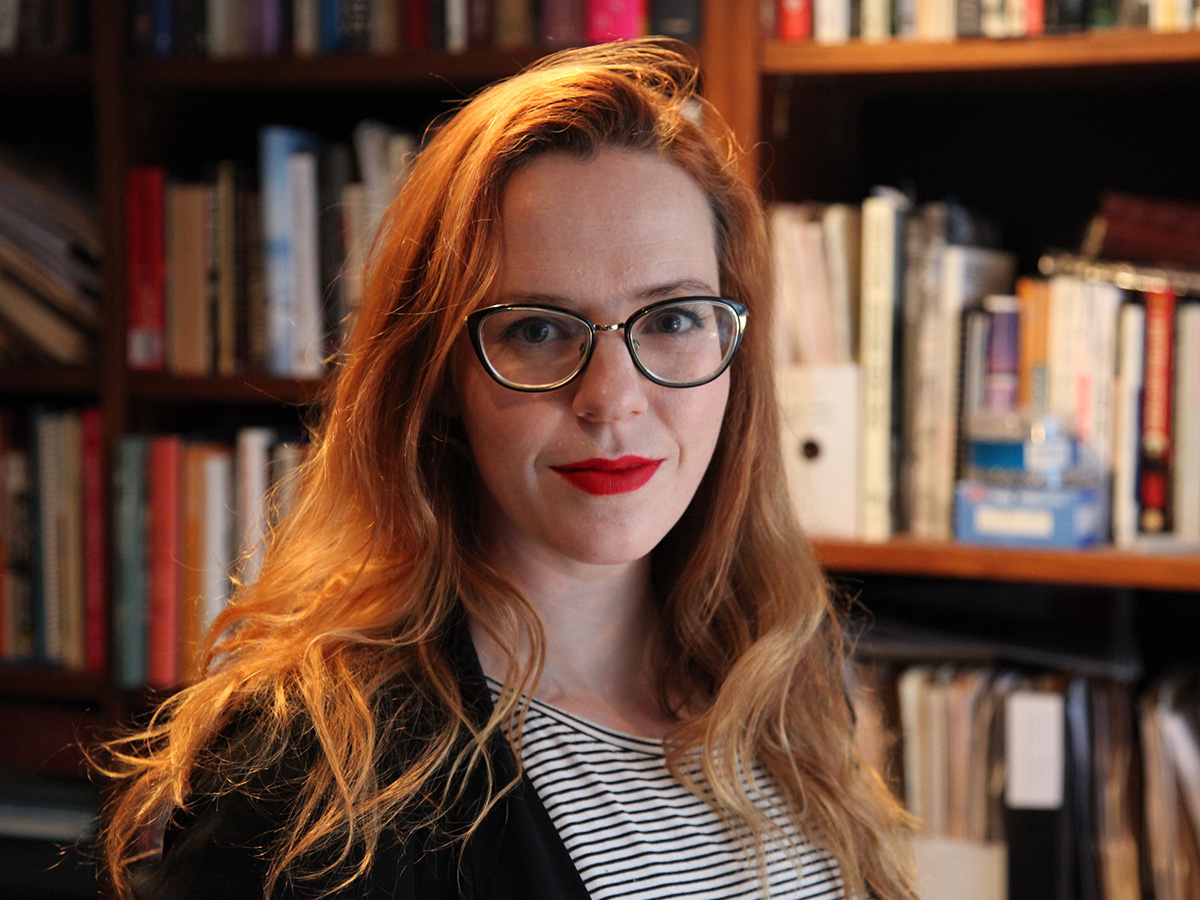Skye’s the limit

Dr. Skye Fitzpatrick, who finished her PhD in clinical psychology at Ryerson in 2018, will be starting a tenure position at York University this summer to lead a research program in the treatment of individuals living with a borderline personality disorder on its own, or combined with PTSD -- a remarkable feat given that she is only one of three such graduates to have garnered an academic position from the relatively young program. (Photo: contributed)
By Suelan Toye
Skye Fitzpatrick has always been interested in the human mind ever since she can remember.
When the psychology graduate thinks back to her childhood, she remembers a project in Grade 7 where she and her classmates could choose any topic they were interested in.
“People chose to talk about their dogs or their favourite basketball team. I chose to do a project on negative emotions and what makes each of them different, from sadness and anxiety to anger.”
Dr. Fitzpatrick’s childhood fascination with emotions sparked a lifelong interest in the study of psychology. This fascination led her to complete a bachelor’s degree in psychology at Dalhousie University in 2011 followed by a psychology PhD (opens in new window) that she finished at Ryerson in 2018, with a research focus on the nature and treatment of borderline personality disorder (BPD). She then went on to complete a predoctoral internship at the University of Washington in Seattle where she received the Nancy Robinson Award for Outstanding Overall Achievement.
Thanks to a CIHR award, Dr. Fitzpatrick is now wrapping up her training in BPD and posttraumatic stress disorder (PTSD) treatment research during a postdoctoral fellowship at the Center for Alcohol Studies at Rutgers University.
Impact of borderline personality disorder
According to some estimates, nearly six percent of the Canadian population may be suffering from some form of BPD. Each individual can show vastly different symptoms as well, ranging from feelings of emptiness to suicidal behaviour, which makes the disorder that much harder to diagnose.
To complicate matters even more, many clinicians often do not know how to treat, or are not willing to treat the disorder, said Dr. Fitzpatrick.
“So while this population is in agony, it’s also really hard for them to get the help they need and not be further judged or rejected by the very system that is supposed to support them in their healing,” said the psychologist. “I saw that as a fundamental injustice and want to be part of a growing movement that reaches out to help this vulnerable group instead of kicking them down when they are down.”
That growing movement is a treatment called dialectical behaviour therapy. Developed by Dr. Marsha Linehan, a psychology professor at the University of Washington, Dr. Fitzpatrick believes this therapy is the leading evidence-based treatment for BPD that can help people with the condition learn new ways of managing their emotions through a combination of techniques rooted in behaviourial science, Zen Buddhism and dialectical philosophy.
Once Dr. Fitzpatrick completes her training at Rutgers University, she will begin a tenured position at York University this summer – a remarkable feat given that she only graduated the year before from her graduate program in clinical psychology.
“Dr. Fitzpatrick’s tenure-track appointment is really a testament to her hard work and keen intellect,” said Dr. Martin Antony, the psychology department’s graduate program director. “She is a fine example of how our graduate program prepares graduates to compete for a range of prestigious positions. We wish her the best as she begins her new role.”
At York University, Dr. Fitzpatrick will continue her research into ways to treat people with either borderline personality disorder, or those who have both BPD and PTSD, a condition caused by trauma that commonly occurs with the personality disorder.
“It’s thrilling to lead a research program that reflects so many of the ideas that I’ve developed as a result of my training at Ryerson,” said Dr. Fitzpatrick. She credits the psychology department’s diversity in research, a strong clinical psychology program as well as talented faculty and their dedication to science for her academic success.
The psychologist is also eager to pass on her extensive knowledge to her students and act as a role model for them. Indeed, she has collaborated on 16 peer-reviewed publications, 5 book chapters and 45 conference presentations. She has also garnered close to $500,000 in research support as either a principal or co-investigator.
“It’s vital to me that people learn to think about mental illness in rigorous, precise and compassionate ways. I can’t wait to play a role in shaping junior clinicians and researchers through teaching courses and mentoring graduate students.”